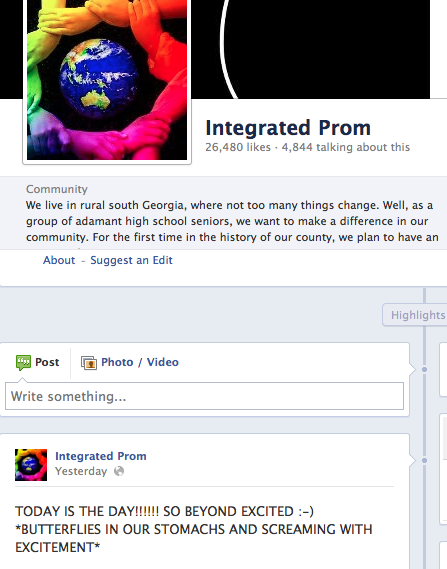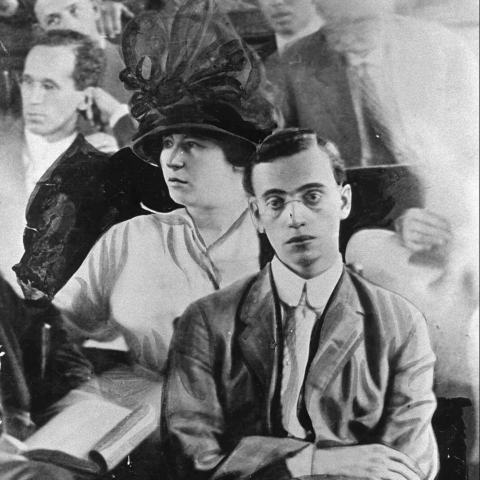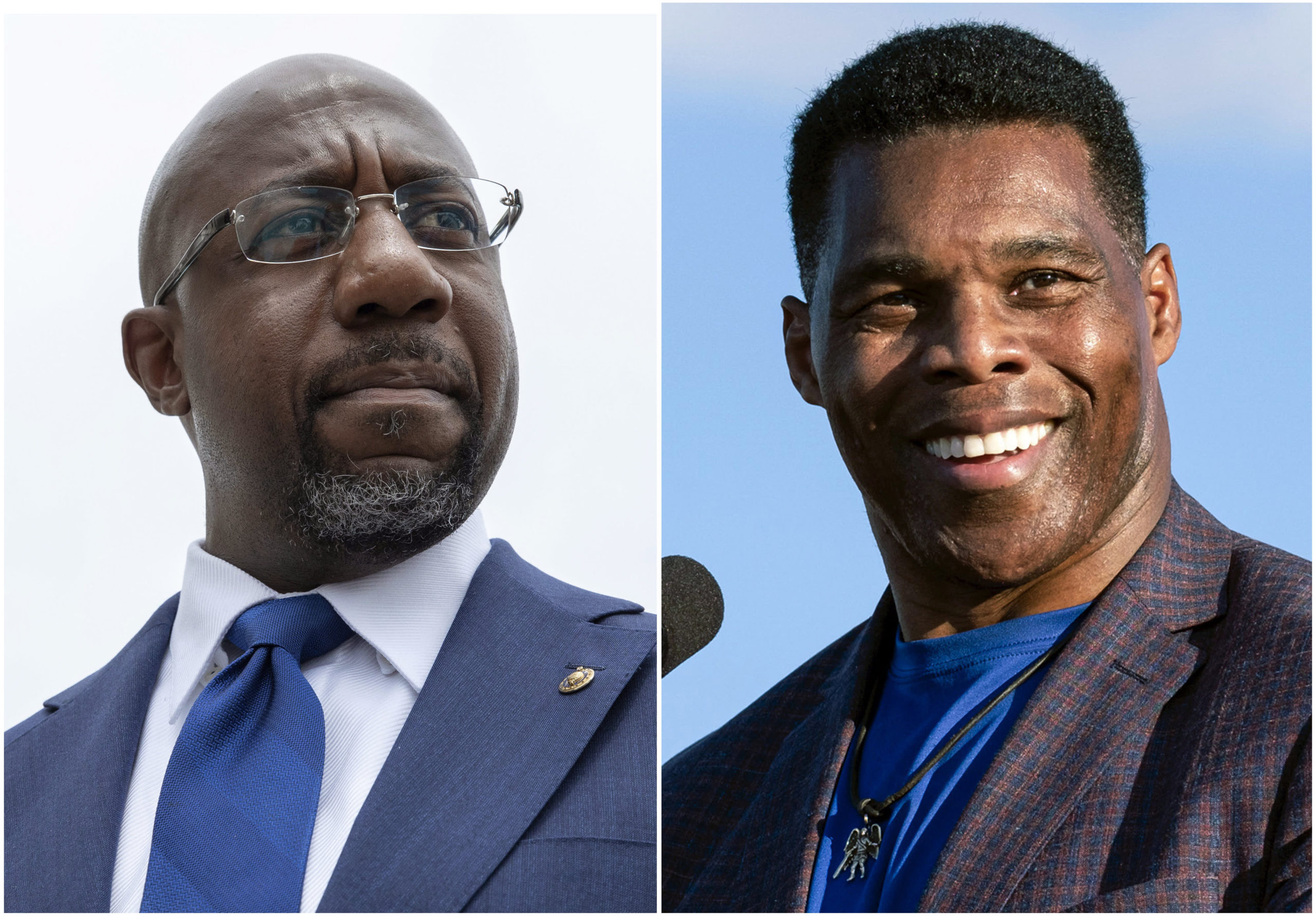By: Greyson Clark
April 27th saw the culmination of a month-long political battle of words. More importantly, the day also marked the successful execution of a plan devised by four students at a Wilcox County high school. Wilcox County, located in southern Georgia, has a high school with two proms. One prom is for white students. One prom is for black students.
Despite the expected outrages of morality, these events are not technically illegal; not being officially sponsored by the school, they are considered “private” parties because parents fund them. The four girls from Wilcox County made the decision to raise the funds for and organize an integrated prom, which occurred yesterday. The effort garnered significant national media attention, ranging across many sources such as Jezebel and the Huffington Post. The integrated prom’s Facebook page, as of this writing, has over 26,000 likes. The first-ever integrated prom was a well-covered story, told from many differing perspectives. While some authors were outraged and surprised that a Georgia community still had a type of de facto segregation, others took a more positive spin. Regardless of the community’s history, no article on the integrated prom is complete without sincere commendation for these girls. The four of them certainly took a gutsy stand, represented their values in the national spotlight, and demonstrated strong citizenship and commitment to democratic values. In spite of the difficult (and still young) teenage years, the nation should be proud.
The emphasis in these stories should be that of the first Wilcox County integrated prom and the actions and citizenship of the four girls. Yet, within Georgia, coverage from this angle was sorely underrepresented. While the national discourse focused more so on the laudatory actions of the students, this type of coverage was subsumed in a petty back-and-forth between Georgia’s political groups. Bipartisan bickering degraded the standing of both sides, led to even greater entrenchment, and provided insights into the future of Georgia’s political landscape.
As the story of the integrated prom was breaking, the Atlanta Journal Constitution’s Georgia politics reporter predicted, “A rare bipartisan agreement is forming among Georgia’s political class.” Following a challenge issued by Better Georgia, a liberal political group, asking Republicans to come out in support of the integrated prom, the reporter foresaw Republicans to be particularly outspoken in their support of the Wilcox County teenagers’ endeavor. On the same day, a right-leaning Georgia blog urged Republicans to score easy political points by supporting the integrated prom. The comments to this blog post foreshadowed the developments of the next two weeks.
Just a few days later, it was clear that this project would not bring the parties together. In fact, it would drive them further apart. As the issue received widespread public attention, Governor Nathan Deal issued this statement to Macon news agency: “this is a leftist front group for the state Democratic party and we’re not going to lend a hand to their silly publicity stunt.” A few days later, Governor Deal, more delicately, stated that while he would not support two segregated proms, he also believed it to be an issue left to the local government. Essentially, Governor Deal would not publicly support the efforts of teenagers to hold an integrated prom because he did not want Georgia’s Democratic Party to gain from the event. Governor Deal’s response only increased media attention and redoubled Better Georgia’s efforts to shame the majority party and force their hand.
The media frenzy surrounding four teenagers’ effort to have an integrated prom brought both of Georgia’s political parties into dialogue. A seemingly positive story of casting off a shameful racist heritage was reduced and used as a political battleground. There was no celebration of Georgia’s youth moving the state in a positive direction. Instead, the charges of both sides were accurate. Better Georgia, as the Republicans claimed, were reducing the teenagers’ effort into a political tool, used to score media attention and to shame the Republicans. But the Republican retort was a significant misstep. The Republican Party failed to endorse the integrated prom, steeping itself in a petty partisan conflict. Furthering its mistake, Governor Deal and his spokesman resorted to archaic stock lines, casting a dichotomy between the local and “outsider” and perpetuating racial politics. From a casual observer’s perspective, the Governor turned a blind eye to remnants of institutionalized racism, partly to spite Democrats and partly to maintain support from voters basing their decision on racial lines. In this episode, neither party won. Democrats are guilty, as are Republicans.
This also carries implications for the future of Georgia’s politics. Republicans stood to gain much by endorsing the integrated prom. Although the Democrats lost, the Republicans lost more. In the changing demographics of Georgia, Republicans could have used the media attention to resist the latent stigma of racist charges. Yet, they withdrew into their beliefs, entrenching themselves against the Democrats. As challenges emerge to Georgia Republican hegemony, particularly when Georgia is in play in 2016 and 2018, will the Republican Party successfully maneuver to capture the changing face of the state? If they respond to challenges as they have done in the last few weeks and do not recast their rhetoric, the next few years could prove problematic.
Any reflections on the integrated prom must conclude with a note of what coverage on this issue should be. Cheers to the four teenagers in Wilcox County; even if your politicians will not stand up for you, you were successful, the integrated prom happened, and many of us with smaller voices are proud.
It’s Black and White Or Let’s Not Mention It
By: Greyson ClarkApril 27th saw the culmination of a month-long political battle of words. More importantly, the day also marked the successful execution of a plan devised by four students at a Wilcox County high school. Wilcox County, located in southern Georgia, has a high school with two proms. One prom is for white students. One prom is for black students.
Despite the expected outrages of morality, these events are not technically illegal; not being officially sponsored by the school, they are considered “private” parties because parents fund them. The four girls from Wilcox County made the decision to raise the funds for and organize an integrated prom, which occurred yesterday. The effort garnered significant national media attention, ranging across many sources such as Jezebel and the Huffington Post. The integrated prom’s Facebook page, as of this writing, has over 26,000 likes. The first-ever integrated prom was a well-covered story, told from many differing perspectives. While some authors were outraged and surprised that a Georgia community still had a type of de facto segregation, others took a more positive spin. Regardless of the community’s history, no article on the integrated prom is complete without sincere commendation for these girls. The four of them certainly took a gutsy stand, represented their values in the national spotlight, and demonstrated strong citizenship and commitment to democratic values. In spite of the difficult (and still young) teenage years, the nation should be proud.
The emphasis in these stories should be that of the first Wilcox County integrated prom and the actions and citizenship of the four girls. Yet, within Georgia, coverage from this angle was sorely underrepresented. While the national discourse focused more so on the laudatory actions of the students, this type of coverage was subsumed in a petty back-and-forth between Georgia’s political groups. Bipartisan bickering degraded the standing of both sides, led to even greater entrenchment, and provided insights into the future of Georgia’s political landscape.
As the story of the integrated prom was breaking, the Atlanta Journal Constitution’s Georgia politics reporter predicted, “A rare bipartisan agreement is forming among Georgia’s political class.” Following a challenge issued by Better Georgia, a liberal political group, asking Republicans to come out in support of the integrated prom, the reporter foresaw Republicans to be particularly outspoken in their support of the Wilcox County teenagers’ endeavor. On the same day, a right-leaning Georgia blog urged Republicans to score easy political points by supporting the integrated prom. The comments to this blog post foreshadowed the developments of the next two weeks.
Just a few days later, it was clear that this project would not bring the parties together. In fact, it would drive them further apart. As the issue received widespread public attention, Governor Nathan Deal issued this statement to Macon news agency: “this is a leftist front group for the state Democratic party and we’re not going to lend a hand to their silly publicity stunt.” A few days later, Governor Deal, more delicately, stated that while he would not support two segregated proms, he also believed it to be an issue left to the local government. Essentially, Governor Deal would not publicly support the efforts of teenagers to hold an integrated prom because he did not want Georgia’s Democratic Party to gain from the event. Governor Deal’s response only increased media attention and redoubled Better Georgia’s efforts to shame the majority party and force their hand.
The media frenzy surrounding four teenagers’ effort to have an integrated prom brought both of Georgia’s political parties into dialogue. A seemingly positive story of casting off a shameful racist heritage was reduced and used as a political battleground. There was no celebration of Georgia’s youth moving the state in a positive direction. Instead, the charges of both sides were accurate. Better Georgia, as the Republicans claimed, were reducing the teenagers’ effort into a political tool, used to score media attention and to shame the Republicans. But the Republican retort was a significant misstep. The Republican Party failed to endorse the integrated prom, steeping itself in a petty partisan conflict. Furthering its mistake, Governor Deal and his spokesman resorted to archaic stock lines, casting a dichotomy between the local and “outsider” and perpetuating racial politics. From a casual observer’s perspective, the Governor turned a blind eye to remnants of institutionalized racism, partly to spite Democrats and partly to maintain support from voters basing their decision on racial lines. In this episode, neither party won. Democrats are guilty, as are Republicans.
This also carries implications for the future of Georgia’s politics. Republicans stood to gain much by endorsing the integrated prom. Although the Democrats lost, the Republicans lost more. In the changing demographics of Georgia, Republicans could have used the media attention to resist the latent stigma of racist charges. Yet, they withdrew into their beliefs, entrenching themselves against the Democrats. As challenges emerge to Georgia Republican hegemony, particularly when Georgia is in play in 2016 and 2018, will the Republican Party successfully maneuver to capture the changing face of the state? If they respond to challenges as they have done in the last few weeks and do not recast their rhetoric, the next few years could prove problematic.
Any reflections on the integrated prom must conclude with a note of what coverage on this issue should be. Cheers to the four teenagers in Wilcox County; even if your politicians will not stand up for you, you were successful, the integrated prom happened, and many of us with smaller voices are proud.

